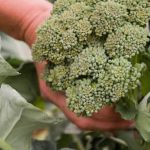In vegetable gardening, mulching plays a crucial role in promoting the health and productivity of plants. Mulch serves as a protective layer that helps retain moisture, suppress weeds, regulate soil temperature, and improve soil fertility. Among the different types of mulch available, one popular option is bark mulch. Bark mulch is created from the outer layers of tree bark and can offer various benefits for vegetable gardens.
Bark mulch is known for its composition and benefits when used in gardening. Made from the shredded or chipped bark of trees, it provides excellent insulation to the soil, helping to maintain optimal temperatures for plant growth. Additionally, bark mulch helps conserve moisture by reducing evaporation and preventing water runoff, ensuring that your vegetable plants receive adequate hydration even during dry spells.
Using bark mulch in vegetable gardens offers several advantages and positive effects on plant growth. Firstly, it acts as a barrier against weeds by smothering them and limiting their access to sunlight. This minimizes competition for nutrients between weeds and vegetable plants.
Moreover, bark mulch gradually breaks down over time, enriching the soil with organic matter that enhances its structure and fertility. As a result, vegetables grown in soil enriched with bark mulch may exhibit improved root development and overall health.
Before opting for bark mulch in your vegetable garden, it is essential to consider any potential cons or limitations associated with this particular type of mulching material. For instance, bark mulch may initially attract insects or harbor pests if not properly applied or maintained. Additionally, some gardeners express concerns about its nitrogen-binding properties that might temporarily limit nutrient availability to plants. However, these issues can be mitigated by following best practices discussed later in this article.
In the subsequent sections of this article, we will dive deeper into understanding the specific benefits of using bark mulch in vegetable gardens while addressing any drawbacks or limitations associated with its use.
We will also provide step-by-step instructions and tips on properly applying bark mulch to maximize its benefits, discuss how it can improve soil quality, identify recommended vegetable plants for use with bark mulch, introduce alternative mulching options, and address frequently asked questions about using bark mulch in vegetable gardens.
By the end of this article, you will have a comprehensive understanding of whether bark mulch is indeed good for your vegetable garden and how to make the most of its potential.
What is bark mulch
Bark mulch is a popular choice for gardeners looking to improve the health and productivity of their vegetable gardens. It is made from the shredded bark of various tree species, such as cedar, pine, or cypress. This organic material offers numerous benefits for vegetable plants and the overall garden environment.
Composition of Bark Mulch
Bark mulch consists of the outer protective layer of trees, which has been shredded into small pieces. This organic matter decomposes slowly over time, providing long-lasting benefits to your vegetable garden. It contains essential nutrients like nitrogen, potassium, and phosphorus that are released into the soil as it breaks down.
In addition to its nutrient content, bark mulch also retains moisture effectively. The fibrous composition of the shredded bark helps to reduce water evaporation from the soil surface, keeping the roots of your vegetables hydrated and reducing their water requirements. As a result, using bark mulch can help conserve water in your garden while promoting optimal plant growth.
Benefits of Bark Mulch for Gardening
There are several key benefits of using bark mulch in vegetable gardens. Firstly, it acts as a natural weed suppressant by creating a barrier on the soil surface that prevents weed seeds from germinating and sprouting. This reduces competition between weeds and your vegetable plants for nutrients and water.
Furthermore, bark mulch provides insulation for the soil, protecting it from extreme temperatures. In hot weather, it helps to keep the soil cooler by reducing heat absorption from sunlight. On the other hand, during colder months or in regions with frosty winters, it acts as an insulating layer that prevents rapid temperature fluctuations in the soil.
Lastly, bark mulch helps maintain more consistent levels of moisture in the soil by preventing excessive evaporation due to wind or high temperatures. By retaining moisture near the root zone of your vegetables, it ensures they have a steady supply of water, reducing the risk of drought stress and promoting healthy growth.
Overall, bark mulch is an excellent choice for vegetable gardens due to its nutrient content, moisture retention abilities, weed suppression effects, and insulation properties. By understanding these benefits, you can make an informed decision about incorporating bark mulch into your gardening routine to enhance the health and productivity of your vegetable plants.
Pros of using bark mulch in vegetable gardens
Bark mulch offers numerous advantages and positive effects when used in vegetable gardens. One of the main benefits is that bark mulch helps to conserve moisture in the soil. By acting as a protective layer on top of the soil, it prevents water evaporation from the surface, reducing the need for frequent watering. This is especially crucial during dry periods or in areas with limited water resources.
In addition to water conservation, bark mulch also acts as insulation for the soil. It helps regulate soil temperature by keeping it cooler during hot summer months and warmer during colder periods. This is particularly important for vegetable plants as they have specific temperature requirements for optimal growth. By providing a stable and favorable environment, bark mulch aids in promoting healthy plant growth and increasing yield.
Another advantage of using bark mulch in vegetable gardens is its ability to suppress weeds. The thick layer of bark acts as a barrier that restricts weed growth by blocking sunlight from reaching weed seeds beneath the surface. This reduces competition between vegetables and weeds for nutrients, water, and sunlight, allowing vegetable plants to thrive without any hindrance.
Furthermore, bark mulch decomposes over time, adding organic matter to the soil. As it breaks down, it enriches the soil with essential nutrients and improves its fertility. This results in healthier plants with stronger root systems and increased resistance to pests and diseases. Moreover, the decomposing bark mulch enhances soil structure by improving its drainage capabilities while retaining moisture at the same time.
Overall, using bark mulch in vegetable gardens provides several benefits that contribute to better plant health and higher yields. Its moisture conservation properties, insulation effect on soil temperature, weed suppression abilities, and ability to improve soil quality make it an excellent choice for gardeners looking to optimize their vegetable harvests while maintaining a healthy garden ecosystem.
Cons of using bark mulch in vegetable gardens
While there are numerous benefits to using bark mulch in vegetable gardens, it is also important to consider the potential drawbacks or limitations of this material in this context.
- Nutrient Robbing: One potential drawback of using bark mulch in vegetable gardens is that it can initially rob the soil of nitrogen as it decomposes. Bark mulch is high in carbon content and requires nitrogen for decomposition. As a result, the bacteria in the soil may consume some of the available nitrogen, depriving vegetable plants of this essential nutrient. This can lead to stunted growth and decreased productivity.
- Acidifying Effect: Another limitation of bark mulch is its tendency to acidify the soil over time. As bark decomposes, it releases organic acids that can lower the pH level of the soil.
While this acidic environment might be beneficial for certain plants like blueberries or tomatoes that thrive in slightly acidic soil, other vegetables may struggle to grow properly in such conditions. It is crucial to regularly test the pH level of the soil and adjust accordingly if needed. - Slower Decomposition: Compared to other types of organic mulches like straw or grass clippings, bark mulch generally takes longer to decompose fully. This slow decomposition rate means that it may remain on top of the soil for several growing seasons before fully breaking down into organic matter. While this can provide long-lasting weed suppression benefits, it also means that nutrients are tied up and not easily accessible by vegetable plants until decomposition occurs.
Despite these potential limitations, with proper management and consideration, many gardeners have successfully used bark mulch in their vegetable gardens without experiencing significant issues. By taking steps like adding additional nitrogen fertilizer during application or choosing vegetables that thrive in slightly acidic soils, these limitations can be mitigated effectively.
When considering whether or not to use bark mulch in a vegetable garden, it is important to weigh both its pros and cons while keeping in mind the specific needs of the vegetable plants being cultivated.
Best practices for applying bark mulch in vegetable gardens
Bark mulch can be a valuable addition to any vegetable garden, providing numerous benefits such as moisture retention, weed suppression, and soil insulation. However, it is important to apply bark mulch correctly in order to maximize its effectiveness. Follow these best practices for applying bark mulch in your vegetable garden to ensure optimal results:
- Prepare the soil: Before applying bark mulch, make sure the soil is free from weeds and well-amended with compost or organic matter. This will create a healthy environment for your plants and help them thrive.
- Determine the appropriate thickness: The ideal thickness for bark mulch in a vegetable garden is around 2-3 inches. This provides enough coverage to suppress weeds and retain moisture while still allowing water and nutrients to penetrate the soil.
- Create a border: To prevent the mulch from spilling over onto your walkways or being scattered by wind or rain, create a clear border around each bed using materials such as rocks or edging.
- Keep mulch away from plant stems: When applying bark mulch, be careful not to pile it up against the stems of your plants. This can cause rotting and disease. Leave a small gap between the stem and the edge of the mulched area.
- Replenish regularly: Over time, bark mulch may break down and decompose, losing its effectiveness as a weed suppressor and moisture retainer. To maintain its benefits, replenish the mulch annually or as needed.
By following these best practices, you can ensure that your bark mulch application is done correctly, allowing you to enjoy all of its advantages in your vegetable garden.
| Best Practices for Applying Bark Mulch | Tips |
|---|---|
| Prepare the soil | Ensure the soil is free from weeds and enriched with compost or organic matter. |
| Determine the appropriate thickness | Aim for a thickness of 2-3 inches for optimal weed suppression and moisture retention. |
| Create a border | Use rocks or edging to create a clear border around each bed to prevent mulch spillage. |
| Keep mulch away from plant stems | Leave a small gap between the mulched area and the stems of your plants to prevent rotting and disease. |
| Replenish regularly | Add new bark mulch annually or as needed to maintain its effectiveness. |
Effects of bark mulch on soil quality
Bark mulch not only provides a protective layer for the soil, but it also has several positive effects on soil quality in vegetable gardens. This section will delve into how bark mulch can improve soil fertility, drainage, and overall health in these specific gardening contexts.
Firstly, bark mulch helps to improve soil fertility by slowly decomposing and releasing essential nutrients into the soil. The organic matter in bark mulch breaks down over time, replenishing the soil with valuable nutrients such as nitrogen, phosphorus, and potassium. These nutrients are vital for healthy plant growth and development. Additionally, as the bark mulch decomposes, it enhances the activity of beneficial microorganisms in the soil, which further contributes to improved fertility.
In terms of drainage, bark mulch plays a crucial role in maintaining proper moisture levels in vegetable gardens. It acts as a natural moisture retainer and prevents excessive evaporation from the soil surface. This is especially important during hot summer months when water retention becomes challenging. By preserving moisture content, bark mulch helps to keep the roots of vegetable plants adequately hydrated without causing waterlogging or root rot.
Furthermore, using bark mulch in vegetable gardens promotes overall soil health by enhancing its structure and texture. The layer of bark mulch prevents erosion caused by heavy rainfall or strong winds by acting as a protective barrier on top of the soil. It also aids in weed suppression by suffocating unwanted plants and preventing them from sprouting and taking up resources that should be allocated to vegetable plants.
To maximize these benefits, it is recommended to apply a 2-4 inch layer of bark mulch around vegetables while leaving a small space around the stem to prevent rotting or decay. Regular monitoring of moisture levels is necessary to determine when additional watering is required due to increased water retention capabilities provided by the bark mulch.
Recommended vegetable plants for bark mulch
One of the great benefits of using bark mulch in vegetable gardens is that it can greatly enhance the growth and productivity of certain vegetables. Some vegetables thrive when cultivated with the use of bark mulch, which can result in increased yield and disease resistance.
One vegetable that benefits greatly from bark mulch is tomatoes. Tomatoes are susceptible to diseases such as blight, which can severely damage or kill the plants. However, by applying a layer of bark mulch around tomato plants, it creates a protective barrier between the soil and the lower leaves of the plant. This helps to prevent soil-borne diseases from splashing onto the leaves during watering or rainfall, reducing the risk of infection and increasing overall plant health.
Another vegetable that thrives when grown with bark mulch is peppers. Peppers prefer warm and well-draining soil, both of which can be achieved by using bark mulch. The layer of mulch helps to retain soil moisture and regulate temperature, creating an optimal environment for pepper plants to flourish. Additionally, bark mulch acts as a natural weed barrier, preventing unwanted competition for nutrients and water.
In addition to tomatoes and peppers, other vegetables such as cucumbers, squash, and melons also benefit from being grown with bark mulch. These vining plants appreciate the extra moisture retention provided by the mulch, resulting in healthier foliage and more abundant fruit production.
Overall, incorporating bark mulch into your vegetable garden can significantly improve the growth and productivity of specific vegetables. By providing a protective barrier against diseases, regulating soil moisture and temperature, and minimizing weed competition, this natural material enhances overall plant health and increases yield potential. Consider utilizing bark mulch when cultivating tomatoes, peppers or other specified vegetables for optimal results in your vegetable garden.
Alternative mulching options for vegetable gardens
Straw
Straw is a popular alternative to bark mulch for vegetable gardens. It is readily available and affordable, making it a convenient choice for many gardeners. Straw acts as an effective mulch by retaining soil moisture, suppressing weeds, and regulating soil temperature. When using straw as mulch, it is important to spread a layer of around 2-4 inches thick around the base of the vegetable plants, taking care to avoid piling it against the stems.
Hay
Hay can also be used as an alternative mulch for vegetable gardens. Like straw, hay helps conserve moisture and suppress weed growth. However, it’s important to note that hay may contain seeds that could sprout and become additional weeds in your garden. To prevent this from happening, it is advisable to use organic hay that has been properly processed and does not contain mature seeds.
Grass Clippings
Grass clippings are another option for mulching your vegetable garden without using bark mulch. When applying grass clippings as mulch, make sure they are not treated with any chemicals or herbicides that could harm your plants. Grass clippings provide nutrients to the soil as they decompose and can help improve soil structure over time.
Compost
Using compost as a mulch material is not only an excellent way to recycle kitchen scraps and yard waste but also adds valuable nutrients to your vegetable garden soil. Apply a layer of compost about 1-2 inches thick around your vegetable plants, being careful not to pile it against the stems.
Landscape Fabric
For those looking for a more permanent solution, landscape fabric can be used as an alternative to bark mulch in vegetable gardens. Landscape fabric acts as a barrier that prevents weed growth while allowing water and nutrients to pass through. It needs to be properly installed, with the fabric secured in place and holes cut out for the vegetable plants to grow.
When selecting an alternative mulch material, consider the specific needs of your vegetable garden and choose a mulch that aligns with those requirements. Each option has its own advantages and disadvantages, so it’s important to evaluate factors such as cost, availability, effectiveness, and environmental impact. Experimenting with different mulching materials can help you determine which works best for your vegetable garden’s overall health and productivity.
Frequently asked questions about using bark mulch in vegetable gardens
One common concern that gardeners may have when considering the use of bark mulch in vegetable gardens is whether it will attract pests or harbor diseases. However, when properly applied and maintained, bark mulch poses minimal risks in this regard. Bark mulch actually acts as a barrier, reducing weed growth and preventing soil-borne diseases from splashing onto plants during rainfall.
Another frequently asked question is how often bark mulch should be replenished or replaced. The answer depends on the type of bark mulch used and the specific conditions of the vegetable garden. Generally, finer-textured barks decompose more quickly than coarser ones, so they may need to be replenished every one to two years.
Coarse bark chips can last up to five years before needing replacement. However, it’s important to regularly monitor the condition of the mulch and add a fresh layer if it becomes too thin or compacted.
Some gardeners may also wonder if using bark mulch will affect the pH level of their soil. While certain types of acidic barks can slightly lower the pH over time, most vegetable plants prefer slightly acidic to neutral soils. Therefore, the slight acidification caused by bark mulch is usually beneficial for vegetable gardens. However, if you are concerned about pH levels, it’s recommended to periodically test your soil and make adjustments as necessary.
Conclusion
In conclusion, bark mulch can be a valuable asset in vegetable gardens due to its numerous benefits and positive effects on plant growth. Throughout this article, we have explored the composition of bark mulch, its pros and cons, best practices for application, effects on soil quality, recommended vegetable plants for use with bark mulch, alternative options, and addressed common questions or concerns.
One of the key advantages of using bark mulch in vegetable gardens is its ability to improve soil fertility and drainage. By acting as a natural insulator, it helps to regulate soil temperature and moisture levels, thus creating an optimal environment for plant roots. Additionally, the slow decomposition of bark mulch adds organic matter to the soil over time, enhancing its nutrient content and overall health.
Furthermore, bark mulch can significantly reduce weed growth by inhibiting weed seed germination and competition for nutrients and sunlight. This not only saves gardeners time but also eliminates the need for chemical herbicides that may harm both plants and the environment.
Overall, when applied correctly following best practices outlined in this article, bark mulch has proven to increase vegetable yields and enhance disease resistance. It provides a protective barrier against extreme weather conditions while promoting healthier plants through improved water retention and nutrient availability.
While there are alternative mulching options available for those who prefer different materials or methods, it is clear that bark mulch remains a popular choice among experienced gardeners due to its versatility and effectiveness. So whether you’re cultivating tomatoes, cucumbers, or leafy greens in your vegetable garden, consider incorporating bark mulch into your gardening routine to reap the many rewards it offers. Happy gardening.
Frequently Asked Questions
Is it OK to use bark mulch in vegetable garden?
Using bark mulch in a vegetable garden can have both advantages and drawbacks. Bark mulch can help conserve moisture in the soil and suppress weed growth, which are beneficial for vegetable plants. It also helps to moderate soil temperature, providing insulation during colder seasons and keeping it cooler during hot summer months.
However, it’s important to consider the source of the bark material as some types may contain chemicals or toxins that can be harmful to edible plants. Additionally, bark mulch breaks down slowly, meaning it will not enrich the soil as quickly as other organic mulches.
What is the best mulch for a vegetable garden?
The best mulch for a vegetable garden depends on various factors such as climate, soil type, and the specific needs of the plants being grown. Organic options like straw, hay, or compost are commonly used in vegetable gardens as they provide a range of benefits. Straw or hay mulch can regulate soil moisture by reducing evaporation and erosion while also helping to prevent weed growth.
Compost is another excellent option because it adds nutrients to the soil as it breaks down, promoting healthy plant growth. Ultimately, choosing the best mulch for your vegetable garden may involve experimentation and considering what works well for your specific conditions.
What mulch to avoid in vegetable garden?
When selecting mulch for a vegetable garden, there are certain types that should generally be avoided. For instance, any type of treated wood or colored dyed wood chips should not be used as mulch around edible plants since they can contain harmful chemicals like arsenic or heavy metals that could leach into the soil and be absorbed by plants.
Similarly, synthetic materials such as rubber mulch or plastic should be avoided due to their inability to decompose properly and potentially contaminate the environment over time. It’s best to prioritize organic options that are safe and promote healthy plant growth without introducing any potential hazards into your vegetable garden ecosystem.

If you’re looking to get into vegetable gardening, or are just looking for some tips on how to make your current garden better, then you’ve come to the right place! My name is Ethel and I have been gardening for years. In this blog, I’m going to share with you some of my best tips on how to create a successful vegetable garden.





